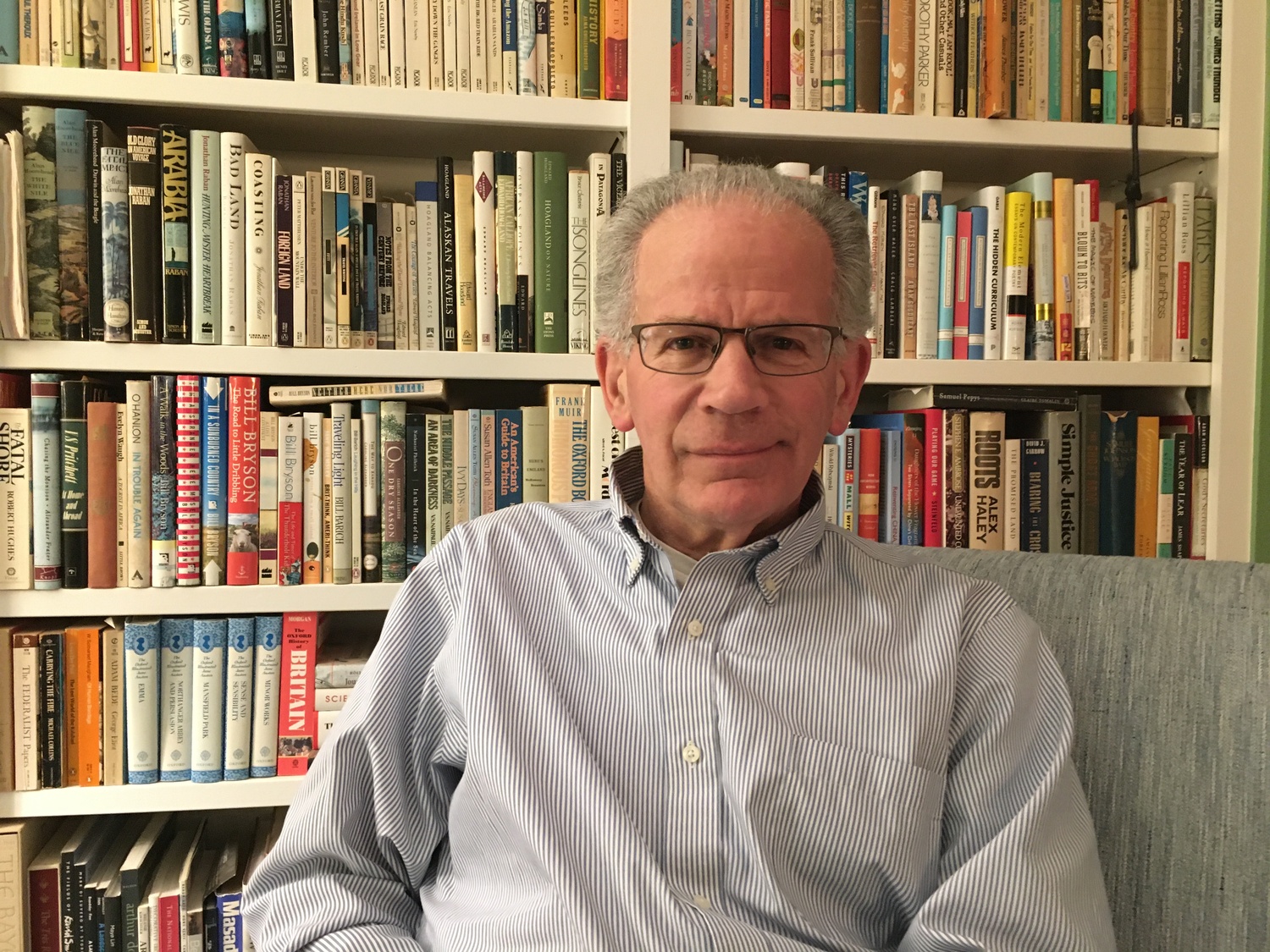
News
Nearly 200 Harvard Affiliates Rally on Widener Steps To Protest Arrest of Columbia Student

News
CPS Will Increase Staffing At Schools Receiving Kennedy-Longfellow Students

News
‘Feels Like Christmas’: Freshmen Revel in Annual Housing Day Festivities

News
Susan Wolf Delivers 2025 Mala Soloman Kamm Lecture in Ethics

News
Harvard Law School Students Pass Referendum Urging University To Divest From Israel
Harvard Magazine Editor Rosenberg to Retire, Ending 30-Year Tenure

Harvard Magazine Editor John S. Rosenberg will retire in April, ending his three-decade tenure at the head of the alumni magazine.
Rosenberg, the first non-alum to serve as editor, oversaw the magazine’s digital transition, introducing online content in addition to its bimonthly print issues. He instituted the magazine’s first full-time staff art director — helping professionalize the design of its print edition — and worked to solicit regular contributions from Harvard faculty.
Rosenberg also increased Harvard Magazine’s coverage of art and performance, introducing the “Montage” section, which includes artist profiles and book reviews.
Jonathan S. Shaw ’89, who has served as Harvard Magazine’s managing editor since 1999, praised the changes he witnessed under Rosenberg, describing his editing as “incredibly skilled.”
“He’s particularly terrific at structural reorganization of texts that sometimes aren’t as felicitous as they should be when they first come in,” Shaw said.
Sewell Chan ’98, a member of the Harvard Magazine Board of Directors and the executive editor of the Columbia Journalism Review, is leading the search for Rosenberg’s successor.
Chan, a former Crimson News editor, wrote in an emailed statement that the search committee is looking for “a respected journalist” and “digital innovator” who will “develop new storytelling formats, build new audiences, and pursue new sources of revenue.”
As an undergraduate, Chan participated in Harvard Magazine’s Ledecky Fellowship, a yearlong program that allows undergraduates to write for the magazine. He praised Rosenberg’s mentorship during the program.
“John offered regular feedback,” Chan wrote. “He’s a writer’s editor, someone who tries to amplify the writer’s voice. His gentle style and his encouragement of everyone’s creativity made him a pleasure to work with.”
Rosenberg said he saw Harvard Magazine’s coverage as a way to draw attention back to the “core academic work” happening at the University.
“We’re giving people a sabbatical back from their lives to the University, but we’re also giving them a sort of free higher education,” he said.
Like many alumni magazines, Rosenberg said, Harvard Magazine began as an independent, alumni-funded organization. He said its continued independence, however, makes it unique — and allows it to cover the University more critically.
“We’re doing the best we can to inform and engage and entertain readers,” he said. “Our criterion is not, ‘Does it promote this?’ or ‘Does it help raise money for that?’ It’s whether readers want to know — and how do they want to know it.”
Chan wrote that Rosenberg had maintained a decades-long commitment to independence from the University, even through crises.
“The magazine’s editorial independence was on full display during two tumultuous periods associated with the resignations of two university presidents, Lawrence H. Summers in 2006 and Claudine Gay earlier this year,” Chan wrote.
Shaw, Harvard Magazine’s managing editor, said he is excited to see how the publication evolves under its next leader.
“It’ll be wonderful to have some fresh perspectives on the University and on the work that we do,” Shaw said. “And I think we’re all looking forward to seeing what that change will be.”
Correction: December 11, 2024
A previous version of this article incorrectly stated that Jonathan S. Shaw served as Harvard Magazine’s managing editor since 1990. In fact, Shaw joined the magazine in 1990 but only became managing editor in 1999.
Want to keep up with breaking news? Subscribe to our email newsletter.
From Our Advertisers

Over 300+ courses at prestigious colleges and universities in the US and UK are at your disposal.

With innovative financial tools combined with financial education, Collegiate empowers students to take control of their finances and build confidence in their money management skills.

Serve as a proctor for Harvard Summer School (HSS) students, either in the Secondary School Program (SSP), General Program (GP), or Pre-College Program.

With an increasingly competitive Law School admissions process, it's important to understand what makes an applicant stand out.

Welcome to your one-stop gifting destination for men and women—it's like your neighborhood holiday shop, but way cooler.

Admit Expert is a premium MBA admissions consulting company, helping candidates secure admission to top B-schools across the globe with significant scholarships.
